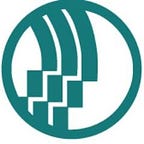Engaging Ideas — 4/8
Every week we curate stories and reports on complex issues including democracy, public engagement, opportunity, education and health care.
Democracy
2 political scientists have found a key reason Republicans and Democrats see politics so differently (Vox)
Republicans’ distrust of the mainstream media creates an asymmetry in how the parties approach the media. Democrats rely on the mainstream media both to get out their message and to cover events. Republicans generally distrust mainstream outlets and so have set up a parallel ecosystem to get their message out. The result is Republicans rely on a media that is more likely to echo their partisan biases, and Democrats rely on media that does not pick a side and at least claims to be objective and empirical (whether or not it lives up to that promise).
Engagement
No, Wait, Short Conversations Really Can Reduce Prejudice (The Atlantic)
A new study redeems a remarkably successful canvassing approach that was rocked by scientific fraud last year.
K-12 Education
The Testing Bill of Rights (Politico’s Morning Education Newsletter)
The Center for American Progress and other groups unveiled a “Testing Bill of Rights” late last month with the goal of collecting 10,000 signatures in a month, but Wednesday CAP announced that it has already collected 11,000 signatures — a third of which stem from New York state, where the opt-out movement is prevalent. The bill of rights is meant to find a middle ground on the issue, denouncing over-testing but advocating that high-quality tests are important for improving instruction and measuring student learning. See the bill here.
Iowa Academic Chief Plays Dual Role (EdWeek)
Jaclyn Zubrzycki writes: In this 1,500-student district between Cedar Rapids and Iowa City, there’s typically little delay when someone has an idea about how technology might help improve academics. That’s because the district’s chief academic officer and chief technology officer are one and the same. And that person is Townsley.
School conditions matter for student achievement, new research confirms (Chalkbeat New York)
Move over, teacher quality. A new study on New York City schools could make school climate the next frontier in the ongoing quest to boost student learning.
Educators Star in ‘Story Project’ (Politico’s Morning Education Newsletter)
TeachStrong, a national campaign that debuted this year aiming to elevate the teaching profession has launched a new story project featuring short videos and other content from nearly 100 educators across 27 states and D.C. The first videos spotlight Chicago Public Schools Principal Rob Croston, 2013 New Hampshire Teacher of the Year Heidi Welch and Thomas Hakim, an eighth-grade math teacher and math department chair from Indianapolis.
Higher Education
Why Upperclassmen Pay More (The New York Times)
Rochelle Sharpe writes: Ms. Hurst’s predicament is all too familiar to students hunting for college bargains. Focused on cost, they attend the institution that showers them with the most money. But many learn a bitter economic lesson once they enroll: The debt can mount during the course of an undergraduate career, thanks to fine print, tough academic requirements on grants, and unanticipated tuition and fee increases.
Will You Sprint, Stroll or Stumble Into a Career? (The New York Times)
Jeffrey Selingo writes: “The long launch into adulthood has gotten even longer. Why are so many new graduates wandering or straggling after college?”
How US Businesses Can Tackle Inequality (Fortune)
We see equality of opportunity — fueled by the capabilities of free-market capitalism — as holding the most potential to bring Americans up the economic ladder. But with unprecedented technological change and competition from abroad, the equal opportunity roadmap needs revision. We have come up with a few ideas: one of which is competency-based education.
Health Care
Many Americans say higher prices don’t mean better health care (Reuters)
Price is often tied to quality, but many in a U.S. survey said that’s not always the case for medical services. Instead, most people said healthcare cost wasn’t necessarily tied to quality. That was actually good news to the researchers.
Study: More Collaboration Aids Health Care For At-Risk Populations (Kaiser Health News)
By teaming with community organizations, doctors and hospitals can deliver high-quality care at good value to disadvantaged people at risk for poor health, according to a new report from a panel of experts.
Patient expectations, engagement increasingly on healthcare CEOs’ minds (Healthcare Dive)
Nearly a third of executives surveyed by Advisory Board Company were extremely interesting in improving patient satisfaction around pricing strategies.
What Yelp Can Tell You About A Hospital That Official Ratings Can’t (The Washington Post)
If you’ve ever taken the time to give Yelp your two cents about a hospital, you’ll be happy to know that someone’s listening and that they’ve deemed the crowdsourced information not only useful — but unique. In what is believed to be the first large-scale analysis of such data, researchers from the University of Pennsylvania looked at 17,000 Yelp reviews of 1,352 hospitals from consumers. They found that the online information provides a broader sense of a facility than the current gold standard — a U.S. government survey that costs millions of dollars to develop and implement each year.
Cities
Engaging Entrepreneurs to Solve Urban Problems (Governing)
A project in Philadelphia used a streamlined approach to procurement to get quick results.
Opinion: Cities for Everyone (The New York Times)
Paul Krugman writes: Our big cities, even New York, could comfortably hold quite a few more families than they do. The reason they don’t is that rules and regulations block construction. Mayor Bill de Blasio has pushed through a program that would selectively loosen rules on density, height, and parking as long as developers include affordable and senior housing. And may I say how refreshing it is, in this ghastly year, to see a politician trying to offer real solutions to real problems?
